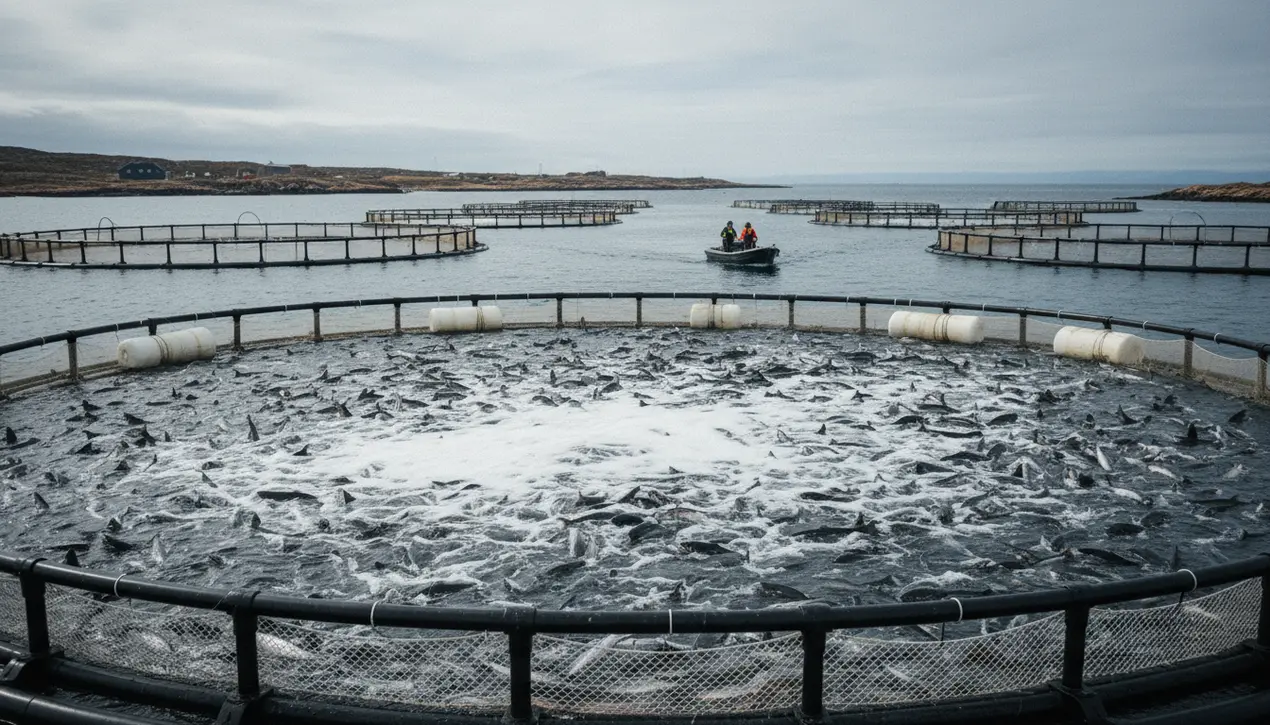
SciencebiologyMarine Biology
Eating the Ocean: The Future of Fish and Aquaculture
RA
Rachel Adams
7 hours ago7 min read1 comments
Beneath the placid surface of our global conversation about food production lies a colossal, churning story we have largely ignored. While Vox's Future Perfect has rigorously chronicled the ethical and environmental catastrophe of land-based factory farming—a system that processes roughly 80 billion sentient creatures annually—this narrative is dwarfed by a quieter, deeper crisis.We are, in fact, consuming the ocean itself. The scale is almost incomprehensible; we harvest hundreds of billions, potentially trillions, of fish and other aquatic animals each year, a number so vast it defies the moral imagination we struggle to apply to chickens and pigs.The pivotal shift, one with seismic implications for the planet's biosphere, occurred in 2022: for the first time, the majority of fish on our plates did not come from wild catches but from controlled cultivation. This is the realm of aquaculture, the world's fastest-growing agricultural sector, and it has rapidly earned a grim moniker from animal welfare advocates: underwater factory farms.The term is not hyperbole. Imagine the epic, instinct-driven journey of a wild Atlantic salmon—a creature hardwired to navigate hundreds of miles of river and ocean—now confined to crowded, sea-lice-infested pens.We are attempting to domesticate an animal of legendary migration in a space that denies its very nature, a profound ethical and ecological miscalculation. This industrial transformation forces us to confront foundational questions about sentience.The long-standing debate over whether fish feel pain is not some academic trifle; it is a captivating philosophical frontier with immense practical consequences. The evidence for piscine sentience, from neurological studies to observable behavioral responses to noxious stimuli, is mounting, challenging our convenient anthropocentrism.This extends even to the shrimp, often dismissed as a mere garnish or cocktail accessory, yet emerging science suggests they, too, are complex moral subjects worthy of consideration. The ramifications of how we 'eat the ocean' extend far beyond the welfare of individual creatures.Our oceans are the planet's primary life-support system, regulating climate, producing oxygen, and harboring immense biodiversity. The methods of industrial fishing—from bottom trawling that scrapes seabeds bare to the pollution and disease runoff from coastal fish farms—directly undermine this delicate balance.This is not merely a food production story; it is a story about the future viability of life on Earth. As aquaculture continues its relentless expansion, we must ask if we are simply replicating the destructive models of terrestrial agriculture in a new, more fragile medium.The narratives we construct—which animals are edible, which are valuable, which are worthy of compassion—are being tested in the murky waters of these underwater farms. To reconsider the salmon, to debate the pain of a trout, or to make a case for the welfare of a shrimp, is to engage in a necessary re-evaluation of our relationship with the blue heart of our planet, a heart we are now learning to farm, with consequences we are only beginning to fathom.
#aquaculture
#fish farming
#animal welfare
#seafood
#ethics
#sustainability
#featured
Stay Informed. Act Smarter.
Get weekly highlights, major headlines, and expert insights — then put your knowledge to work in our live prediction markets.
Related News
Comments
Loading comments...
© 2025 Outpoll Service LTD. All rights reserved.